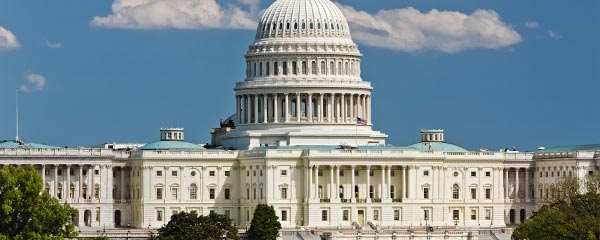Story Highlights
- New high of 71% expect prices to increase, up from 40% in 2020
- Public largely divided on whether it is a good time to buy a house
- More pick real estate as best investment than other options
WASHINGTON, D.C. -- Seventy-one percent of U.S. adults predict the average price of houses in their area will increase over the next year. The current results stand in sharp contrast to attitudes in April 2020, amid mounting economic uncertainty at the start of the coronavirus pandemic, when just 40% predicted a rise in home values.
Until last year, majorities had expected home prices to rise each year since 2013. The current 71% is technically the highest in Gallup's trend, though not statistically different from the 70% measured in 2005.

Line graph. A new high of 71% of U.S. adults believe average home prices in their local area will increase in the next year. The prior high was 70% in 2005. From 2005-2008 and from 2013-2019, majorities expected home prices to increase. The low point was 22% in 2009, after the housing bubble burst.
The April 1-21 Gallup poll also finds 10% of Americans -- down from 25% a year ago -- predicting home values will decrease. Meanwhile, 18% of U.S. adults believe there will be no change in housing prices.
Americans' expectations for home values have proven in the past to be influenced by the health of the current housing market. The prior high of 70% came during the rapidly emerging housing bubble that eventually burst and was a major contributor to the 2007-2009 Great Recession. From 2008 through 2012, no more than 34% of Americans thought home prices would rise.
As the housing market recovered in the ensuing years, Americans were more likely to predict an increase in local home values, a trend that was interrupted last year amid widespread restrictions on business and public activity, including home showings, last spring.
That brief pause did little to stop the surging home market, which only grew hotter when the federal government cut interest rates and sent Americans several rounds of stimulus payments. These actions, designed to contain damage to the economy from the coronavirus, came at a time when the supply of available houses could not keep up with demand. Additionally, many people forced into remote work and schooling by COVID-19 health restrictions were looking for new houses to accommodate those lifestyle changes.
Americans in all regions of the country expect housing prices to rise in their area, though Midwestern residents are slightly less likely to do so than others. Midwestern residents were also less likely than those living in other areas of the U.S. to expect prices to rise last year.
Likewise, Americans who describe the area where they live as a "town" or "rural area" are less likely than those living in cities or suburban areas to predict an increase in local home values. Homeowners and non-owners have similar views.
All of these groups are far more likely to think that home prices will increase than they were a year ago.
| 2020 | 2021 | Change | ||||||||||||||||||||||||||||||||||||||||||||||||||||||||||||||||||||||||||||||||||||||||||||||||||
|---|---|---|---|---|---|---|---|---|---|---|---|---|---|---|---|---|---|---|---|---|---|---|---|---|---|---|---|---|---|---|---|---|---|---|---|---|---|---|---|---|---|---|---|---|---|---|---|---|---|---|---|---|---|---|---|---|---|---|---|---|---|---|---|---|---|---|---|---|---|---|---|---|---|---|---|---|---|---|---|---|---|---|---|---|---|---|---|---|---|---|---|---|---|---|---|---|---|---|---|---|
| % | % | pct. pts. | ||||||||||||||||||||||||||||||||||||||||||||||||||||||||||||||||||||||||||||||||||||||||||||||||||
| Region | ||||||||||||||||||||||||||||||||||||||||||||||||||||||||||||||||||||||||||||||||||||||||||||||||||||
| East | 44 | 77 | +33 | |||||||||||||||||||||||||||||||||||||||||||||||||||||||||||||||||||||||||||||||||||||||||||||||||
| Midwest | 32 | 60 | +28 | |||||||||||||||||||||||||||||||||||||||||||||||||||||||||||||||||||||||||||||||||||||||||||||||||
| South | 39 | 72 | +33 | |||||||||||||||||||||||||||||||||||||||||||||||||||||||||||||||||||||||||||||||||||||||||||||||||
| West | 44 | 76 | +32 | |||||||||||||||||||||||||||||||||||||||||||||||||||||||||||||||||||||||||||||||||||||||||||||||||
| Place of residence | ||||||||||||||||||||||||||||||||||||||||||||||||||||||||||||||||||||||||||||||||||||||||||||||||||||
| Big/Small city | 43 | 75 | +32 | |||||||||||||||||||||||||||||||||||||||||||||||||||||||||||||||||||||||||||||||||||||||||||||||||
| Suburb of big/small city | 35 | 75 | +40 | |||||||||||||||||||||||||||||||||||||||||||||||||||||||||||||||||||||||||||||||||||||||||||||||||
| Town/Rural area | 38 | 63 | +25 | |||||||||||||||||||||||||||||||||||||||||||||||||||||||||||||||||||||||||||||||||||||||||||||||||
| Own or rent home | ||||||||||||||||||||||||||||||||||||||||||||||||||||||||||||||||||||||||||||||||||||||||||||||||||||
| Own | 38 | 71 | +33 | |||||||||||||||||||||||||||||||||||||||||||||||||||||||||||||||||||||||||||||||||||||||||||||||||
| Rent | 44 | 71 | +27 | |||||||||||||||||||||||||||||||||||||||||||||||||||||||||||||||||||||||||||||||||||||||||||||||||
| Gallup | ||||||||||||||||||||||||||||||||||||||||||||||||||||||||||||||||||||||||||||||||||||||||||||||||||||
Slim Majority Say It Is a Good Time to Buy a Home
Americans generally endorse the idea of buying a home, but the percentage who do so has historically varied according to conditions in the housing market. Currently, 53% say it is a good time to buy a house, barely improved from last year's record-low 50%.
Slim majorities also said it was a good time to buy a house in 1978, a time of high inflation and high mortgage interest rates, and in the mid-2000s housing bubble era. Americans were most bullish on home buying in 2003, when home prices were rising sharply and 81% said it was a good time to buy a home.

Line graph. Fifty-three percent of Americans in 2021 say it is a good time to buy a house, among the lowest measured in Gallup's trend.
Western residents, who live in the part of the country with the highest home prices, are among the subgroups of Americans least inclined to say it is a good time to buy a house. Forty-four percent of Western residents hold this view, compared with between 52% and 60% who live in the other areas of the country.
Suburban residents are modestly more likely than city or rural residents to say it is a good time to buy a house. Homeowners are also more likely than renters to believe it is a good time.
| 2020 | 2021 | Change | ||||||||||||||||||||||||||||||||||||||||||||||||||||||||||||||||||||||||||||||||||||||||||||||||||
|---|---|---|---|---|---|---|---|---|---|---|---|---|---|---|---|---|---|---|---|---|---|---|---|---|---|---|---|---|---|---|---|---|---|---|---|---|---|---|---|---|---|---|---|---|---|---|---|---|---|---|---|---|---|---|---|---|---|---|---|---|---|---|---|---|---|---|---|---|---|---|---|---|---|---|---|---|---|---|---|---|---|---|---|---|---|---|---|---|---|---|---|---|---|---|---|---|---|---|---|---|
| % | % | pct. pts. | ||||||||||||||||||||||||||||||||||||||||||||||||||||||||||||||||||||||||||||||||||||||||||||||||||
| Region | ||||||||||||||||||||||||||||||||||||||||||||||||||||||||||||||||||||||||||||||||||||||||||||||||||||
| East | 50 | 52 | +2 | |||||||||||||||||||||||||||||||||||||||||||||||||||||||||||||||||||||||||||||||||||||||||||||||||
| Midwest | 52 | 60 | +8 | |||||||||||||||||||||||||||||||||||||||||||||||||||||||||||||||||||||||||||||||||||||||||||||||||
| South | 55 | 56 | +1 | |||||||||||||||||||||||||||||||||||||||||||||||||||||||||||||||||||||||||||||||||||||||||||||||||
| West | 40 | 44 | +4 | |||||||||||||||||||||||||||||||||||||||||||||||||||||||||||||||||||||||||||||||||||||||||||||||||
| Place of residence | ||||||||||||||||||||||||||||||||||||||||||||||||||||||||||||||||||||||||||||||||||||||||||||||||||||
| Big/Small city | 45 | 51 | +6 | |||||||||||||||||||||||||||||||||||||||||||||||||||||||||||||||||||||||||||||||||||||||||||||||||
| Suburb of big/small city | 54 | 60 | +6 | |||||||||||||||||||||||||||||||||||||||||||||||||||||||||||||||||||||||||||||||||||||||||||||||||
| Town/Rural area | 51 | 53 | +2 | |||||||||||||||||||||||||||||||||||||||||||||||||||||||||||||||||||||||||||||||||||||||||||||||||
| Own or rent home | ||||||||||||||||||||||||||||||||||||||||||||||||||||||||||||||||||||||||||||||||||||||||||||||||||||
| Own | 53 | 56 | +3 | |||||||||||||||||||||||||||||||||||||||||||||||||||||||||||||||||||||||||||||||||||||||||||||||||
| Rent | 44 | 50 | +6 | |||||||||||||||||||||||||||||||||||||||||||||||||||||||||||||||||||||||||||||||||||||||||||||||||
| Gallup | ||||||||||||||||||||||||||||||||||||||||||||||||||||||||||||||||||||||||||||||||||||||||||||||||||||
More This Year Say Real Estate Is the Best Investment
Americans' proclivity to say it is a good time to buy a house may also reflect their ideas on the value of homeownership as much as current housing market conditions. Gallup usually finds that Americans regard real estate as the best long-term investment among several options -- seeing it as superior to stocks, gold, savings accounts and bonds.
This year, 41% choose real estate as the best investment, up from 35% a year ago, with stocks a distant second.
| 2020 | 2021 | Change | |||||||||||||||||||||||||||||||||||||||||||||||||||||||||||||||||||||||||||||||||||||||||||||||||
|---|---|---|---|---|---|---|---|---|---|---|---|---|---|---|---|---|---|---|---|---|---|---|---|---|---|---|---|---|---|---|---|---|---|---|---|---|---|---|---|---|---|---|---|---|---|---|---|---|---|---|---|---|---|---|---|---|---|---|---|---|---|---|---|---|---|---|---|---|---|---|---|---|---|---|---|---|---|---|---|---|---|---|---|---|---|---|---|---|---|---|---|---|---|---|---|---|---|---|---|
| % | % | pct. pts. | |||||||||||||||||||||||||||||||||||||||||||||||||||||||||||||||||||||||||||||||||||||||||||||||||
| Real estate | 35 | 41 | +6 | ||||||||||||||||||||||||||||||||||||||||||||||||||||||||||||||||||||||||||||||||||||||||||||||||
| Stocks/Mutual funds | 21 | 26 | +5 | ||||||||||||||||||||||||||||||||||||||||||||||||||||||||||||||||||||||||||||||||||||||||||||||||
| Gold | 16 | 18 | +2 | ||||||||||||||||||||||||||||||||||||||||||||||||||||||||||||||||||||||||||||||||||||||||||||||||
| Savings accounts/CDs | 17 | 9 | -8 | ||||||||||||||||||||||||||||||||||||||||||||||||||||||||||||||||||||||||||||||||||||||||||||||||
| Bonds | 8 | 3 | -5 | ||||||||||||||||||||||||||||||||||||||||||||||||||||||||||||||||||||||||||||||||||||||||||||||||
| Gallup | |||||||||||||||||||||||||||||||||||||||||||||||||||||||||||||||||||||||||||||||||||||||||||||||||||
The 41% choosing real estate is the highest selecting any of the five investment options in the 11 years Gallup has asked this question. Gold peaked at 34% in 2011, while stocks did so in 2019, at 27%.

Line graph. Trend in Americans' views of the best long-term investment. The percentage saying "real estate" has ranged from 19% in 2011 to 41% today. The percentage choosing "stocks" has ranged from 17% in 2011 to 27% in 2019. In 2011, 34% said gold was the best investment, but today, 18% do. The low point for gold is 14% in 2019.
An earlier version of the question, asked between 2002 and 2012, did not include gold as an option. In that version, as many as 50% chose real estate as the best investment, in 2002, with between 26% and 37% choosing it in other years.
Bottom Line
The U.S. housing market surge that began before the coronavirus pandemic has continued through the economic disruption caused by the virus, and now, home values have risen to historical highs. The supply of available homes has not kept up with demand, and low interest rates have increased homebuyers' purchasing power, often leading to bidding wars on available properties.
These conditions, though, may be forcing many prospective buyers out of the homebuying market, as the number of home sales has been declining in recent months. Market activity in the coming months will be more telling, as spring and summer represent the usual peak homebuying season.
Americans appear to be aware of the rise in home values, and they expect prices to continue to rise. Their belief in continued rising prices at a time when home values have never been higher would help explain why they are less optimistic than usual that it is a good time to buy a home.
View complete question responses and trends (PDF download).
Learn more about how the Gallup Poll Social Series works.




